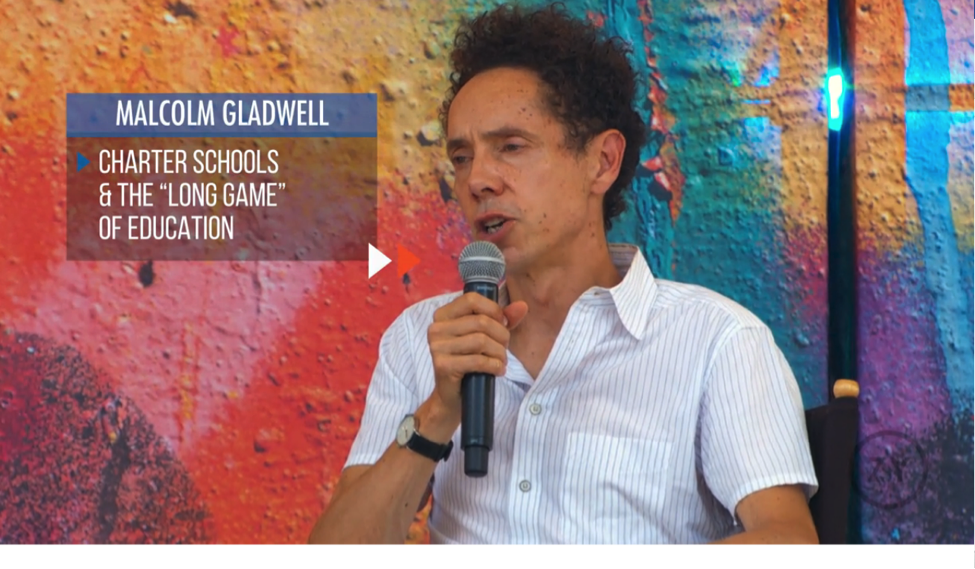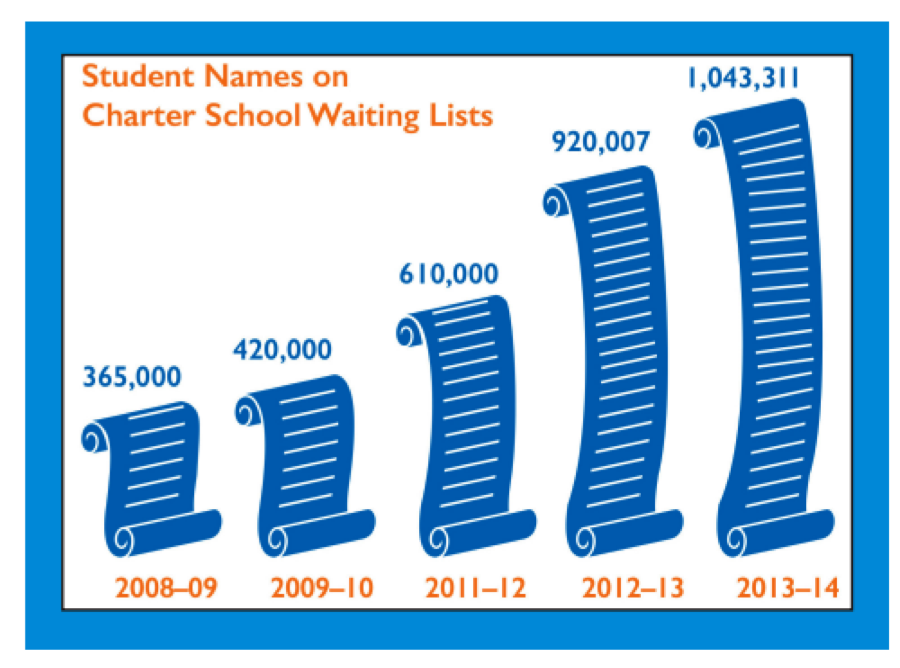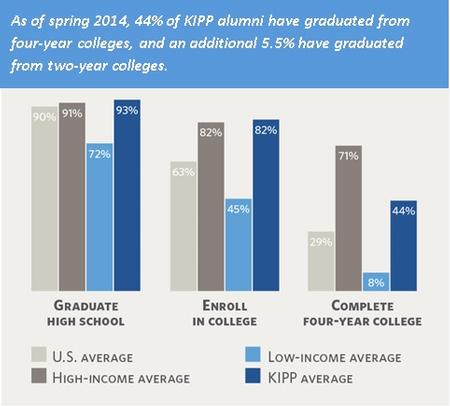From lawsuits and legislative caps to smear campaigns, public charter schools have been under a fairly constant barrage of criticism since the movement began in 1991. However, Malcolm Gladwell — author, journalist, and long-time KIPP Charter School supporter – prudently reminds us that education reform is a long game.

So to our tireless charter advocates – from those fighting back lawsuits in Washington State challenging the constitutionality of funding charter schools ever since they were first allowed in the state in 2012, to those fighting to #LiftTheCap in Massachusetts to remove legislative caps on funding for these programs and on their expansion, to those fighting against the NAACP moratorium call on charter schools and John Oliver’s cheap shots cherry-picking unsuccessful ventures that were improperly managed – we say “Chin up.” Despite the negativity, we all must remember that demand for these programs continues to rise because of the successes we have already seen.
The KIPP (Knowledge Is Power Program) Public Charter School network, for example, has already changed the lives of thousands of minority students who may have never stood a chance in a traditional school environment. KIPP serves nearly 80,000 students in 20 states across the nation and the District of Columbia. The program has prepared its students so well that their college graduation rates are “above the national average for all students and four times the rate for students from low-income families nationwide.”
Beyond KIPP, larger evaluations of public charter schools nationally show that students, especially those from disadvantaged groups, make more academic progress than their peers in traditional public schools. A low-income student in a charter school can expect to gain an additional 14 days of learning in reading and an additional 22 days of learning in math compared to their low-income peers in traditional public schools.
Just ask the parents. Demand for public charter schools has increased tremendously over the years. Waiting lists continue to lengthen while growth rates are being hampered (cough, Massachusetts).

With all of the tension surrounding charter schools these days, one of the most important things we must bear in mind is the ultimate end goal: the success of children.
In a recent congressional hearing held by the Ways and Means Oversight Subcommittee, Congressman Charles Rangel (D-NY) argued that the education of our youth is not only a matter of fairness, it’s a matter of national security; educated people are productive people, people that the nation needs in order to stay competitive and successful on a global scale: “There has to be a basic minimum commitment that our young men and women are going to be productive no matter where they come from.”
Successful public charter schools such as KIPP have been ensuring the productivity and accomplishments of thousands of young people across this nation who may have never had a chance otherwise because of “where they come from.”
The public charter school movement is still relatively young. And as with any new movement, there are bound to be some stumbles here and there, but we can’t let those obstacles derail progress. Rome wasn’t built in a day; the movement requires patience and support for what is working. These programs are saving the lives of thousands of kids every day. It would be a tragedy to ignore the tremendous successes of this movement and deny deserving students their potential to be a part of it.
So thanks, Malcolm Gladwell, for the poignant reminder. Chin up, charter supporters. “Education Reform is a Long Game.”
Madison Gray is a policy and communications intern with Education Reform Now.
